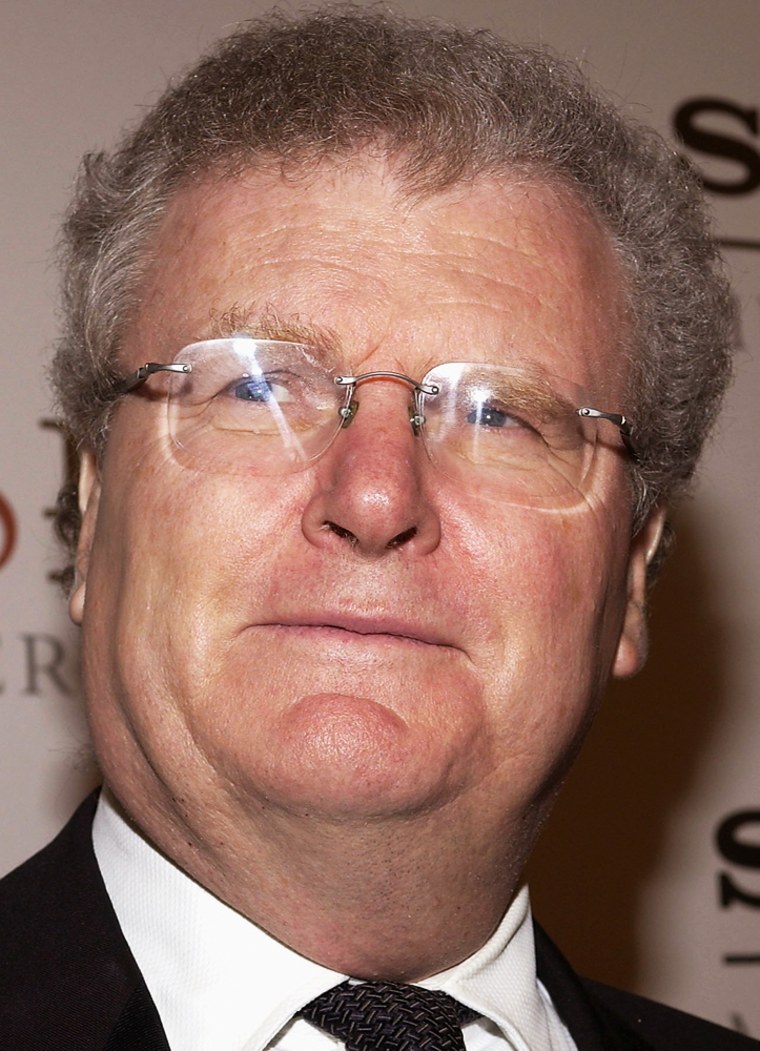For years, Sony Corp. has had trouble straddling the world of consumer electronics — its main line of business — and the movies, music and video games it produces to play on those devices.
With the appointment of Howard Stringer as chairman and chief executive, Sony has not only turned to a foreigner but to a strong proponent of the “content” side of the company, a move that could mark a profound shift in its strategy.
“Here you’ve had a hardware-based company for whom content had been tangential turning to the guy who spent his entire career doing content,” said Tom Wolzien, media analyst for Sanford C. Bernstein & Co. “It’s rather a remarkable change.”
Critics have been calling on Sony Corp. to boost its profitability as the company has come under intense pressure from lower cost Asian rivals and domestic competitors that have gained an edge in key market segments such as flat panel TVs.
Borrowing a page from Nissan Motor Co. and other venerable Japanese companies that have welcomed leaders from abroad, Sony picked the 63-year-old Stringer — who has overseen Sony’s entertainment business — to take the reins.
He replaces Nobuyuki Idei, 67, who has led the Tokyo-based company for a decade.
The Welsh-born Stringer, who holds dual U.S. and British citizenship, told a news conference that it’s time to reinvent Sony and dispense with any tendencies to react slowly to the rapid pace of technological change.
“As with all great institutions, Sony has built a tremendous legacy over 60 years. But we cannot let that trap us or inhibit us. We need to take that legacy and reinvent it,” Stringer said. “The dynamics and competitive landscape have changed. The pace of innovation across all the businesses in which we compete has changed. So Sony too must change.”
Investors have taken a dismal view of Sony’s recent attempts to remake itself. Though Sony’s stock price inched up 1.5 percent on Monday to close at 4,070 yen ($38.76) on the Tokyo Stock Exchange, its shares were selling for less than half of what they were worth four years ago.
Products that were once pillars of Sony’s power, such as TVs and portable media players, have suffered declining sales, forcing Sony to increasingly count on hit movies such as “Spider-Man” and “Spider-Man 2” to support its bottom line.
Embarrassingly for the pioneer that first made portable music a reality with the Walkman in the 1980s, Sony allowed Apple Computer Inc. a giant lead in digital music with the iPod player and iTunes online store. Sony is only now coming out with a full line of competing portable players.
Stringer is seen as unafraid to make the kind of sweeping changes, including bridging the competing interests of its technology and content sides, that Sony might need to make the elusive goal of “convergence” work.
“Stringer got them out of the TV content business because he decided it wasn’t profitable,” Wolzien said. “He has a history of being willing to shut stuff down if it doesn’t make sense.”
Over the past two years, Stringer turned to two “outsiders” to lead the company’s movie and music divisions. In 2003, Stringer named NBC president Andrew Lack to head its struggling music division. The same year, Stringer tapped AOL International head Michael Lynton to head Sony Pictures.
Stringer has also been highly influential in persuading Sony’s Japanese leadership to invest in building the kind of content library that could give its new consumer electronics offerings an edge.
He strongly urged the purchase by a Sony-led consortium of film studio Metro-Goldwyn-Mayer, for instance — a move seen as key to its upcoming new high-definition DVD format Blu-Ray and to provide content for its new PlayStation Portable.
“That is why content is at the heart of Sony’s strategy,” Stringer said in a speech last March. “Like a new world orbiting an ancient sun, the broadband entertainment planet will orbit around content, as surely as the analog world did before it. Content is the flame that beckons.”
Kazuharu Miura, analyst at Daiwa Institute of Research in Tokyo, predicted Stringer would be able to overcome internal divisions at Sony because he hasn’t risen through the ranks like most Japanese executives. He noted Carlos Ghosn, the Brazilian-born Frenchman who has steered Nissan from near-bankruptcy to being one of the world’s most profitable automakers, has exploited similar status to his advantage.
Miura said he wouldn’t rate Stringer’s appointment until he saw the new executive’s business plan, something he doesn’t expect for at least another six months.
Stringer, for one, has no background in engineering — and electronics remain Sony’s core business, accounting for 70 percent of revenues in the quarter ending Dec. 31.
Idei said Sony, which has 50,000 employees in Japan and another 100,000 overseas, would have little trouble adjusting to being lead by a foreigner. And Stringer said he wasn’t worried about communicating because many executives at Sony speak English.
Stringer said he will work closely with Ryoji Chubachi, who will replace Kunitake Ando as president, and with Katsumi Ihara, the chief financial officer. Both are Japanese and have years of experience in electronics.
He added he would carry on the strategy set up by Idei and Ando of integrating electronics and entertainment. But he said he will accelerate decision-making and use younger talent.
Stringer joined Sony in 1997 after serving as president of CBS News from 1986 to 1988, and then president of CBS Broadcast Group from 1988 to 1995.
He will continue to live in New York, where he now resides, and travel between the United States and Japan.
